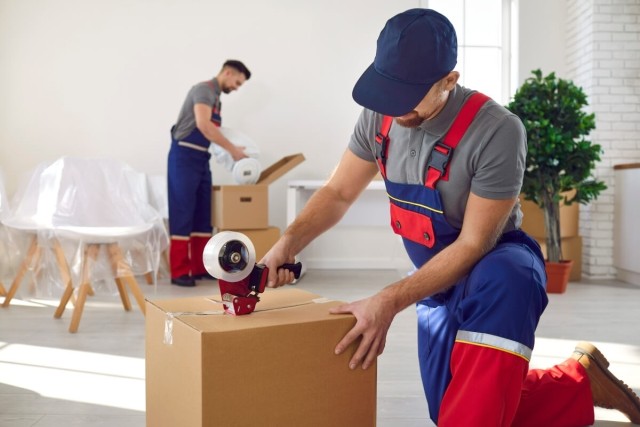Unfortunately, landlords often carry around a negative stereotype that all too familiar for many tenants. However, it is possible to manage a successful rental property and still commit to the ethical responsibilities of a landlord. Ethical landlords understand that tenants want to feel comfortable and safe and will maintain high standards to do so. They also know that acting ethically means tenants will be more likely to take care of the property and renew their lease. Here are some tips on how to be an ethical landlord:
1.Be Accessible and Responsive
Whether it’s a plumbing leak, noisy neighbors, or an emergency, your tenants will need to contact you when a problem arises. Even if you can’t address the issue immediately, it’s important to have a system in place for them to contact you.
Provide your tenants with a phone number and/or email for contact. When they reach out, make it clear that you’ve heard their concerns and will take appropriate action as soon as possible. Some landlords will even provide their personal number, but this is not a requirement, and you don’t have to do so if you don’t feel comfortable. It’s also a good idea to have another point of contact like a property manager if you are unavailable or traveling.
2. Attend to Maintenance Requests in a Timely Manner
No one wants to live with a leaky faucet, mold, and other maintenance issues long term. Regardless of the severity, your tenant’s life will be affected until the problem is fixed, so it’s important to act within a reasonable timeframe. Remember that tenants have a right to a habitable living space as well. Landlords must guarantee that a rental property is safe and in working order under the implied warranty of habitability.
Some repairs landlords can handle on their own, but you also develop a network of electricians, plumbers, and other professional contractors that can fix any issues for you. Preventative tasks like servicing the HVAC system or cleaning the gutters can help limit the number of maintenance requests you receive. If you want to be even more proactive, installing certain features such as durable flooring or an easy-to-clean countertop can also help make your rental property lower maintenance.
3. Be Flexible with Rental Policies
Although you want your tenants to enjoy living in your rental property, setting clear boundaries is necessary for the business to thrive. Assert your expectations and house rules in the lease. Including certain clauses in the lease will help protect you as a landlord, especially during small claims court. However, an ethical landlord is aware that life is unpredictable and certain situations might call for as light bend in the rules.
For example, let’s say your lease requires tenants to pay rent by the first of the month, but you have a reliable tenant who was recently laid off and has notified you that they will be late on rent this month. Depending on the situation and state laws, pursuing eviction could be legal, but an ethical landlord would consider other options first. Instead of going straight to eviction, an ethical landlord might send a notice to pay or quit letter, offer cash for keys, or accept a partial rent payment.
4. Offer a Fair Price for Rent
Figuring out how much to charge for rent will always be tricky, but an ethical landlord will set a price based on the rental market. The rental price will allow them to cover their expenses while still making a profit, but the price should be affordable enough for potential tenants as well. If your rent is too high, chances are you’ll have more difficulty renting the property anyway.
When you list your rental on Apartments.com, we provide you with free rent comparison reports. This valuable information gives you a clear understanding of the market so you can price your rental right, compare your property’s value to other similar properties, and review market conditions like the average days on the market and the average rent rates. In addition to this valuable information, your rental home will appear on all 12 of our network sites to help you reach potential renters where they’re searching. By listing on Apartments.com, you can reach millions of renters and fill your vacancy fast.
5. Keep Track of Rental Documents
Landlords deal with a lot of paperwork and it’s important to keep all rental documents organized in case any disputes arise. As a rule of thumb, keep rental applications, lease agreements, and other documents in a secured file. Record every administrative action you complete, especially maintenance history. For example, if a tenant’s refrigerator is broken, archive any emails, record the date when the appliance was serviced or replaced, and keep invoices from any maintenance professionals. Apartments.com has a maintenance tracking feature so keeping a record of past requests and expenses online is made easy. You can receive maintenance requests and reach out to service professionals through Apartments.com as well. We notify you when you have a request, and you can easily update your tenants as the repair progresses. You can even attach receipts, upload notes, and track expenses for the repairs. You and your tenants can even share images and videos. Keeping everything in one place makes it easy to keep track of repairs, how often something is requiring repair, and how future repairs might impact your budget
To alleviate disagreements regarding normal wear-and-tear, complete a move-in/move-out inspection and have both parties complete a walk-through checklist. If there is major damage and you have to deduct from the security deposit, provide the tenant with an itemized list of charges.
6. Openly Communicate with Tenants
Be transparent and honest by communicating with your tenants about anything that will affect them while living in the rental. Always give proper notice before entering the unit, whether it be for routine inspections or necessary maintenance and repairs. If you have to renovate while tenanted, have a meeting with your tenant and consider offering a rent concession. Tenants appreciate knowing about these things in advance so they can be prepared and know what to expect.
7. Respect Tenants’ Privacy
Although some local laws may allow landlords to enter a unit to perform repairs or inspections, an ethical landlord will not inspect a tenant’s home excessively or unannounced. If you must enter a rental property, provide proper notice at least 24 hours beforehand. Check your state laws to determine what is considered an excessive number of inspections and if written notice is required.
When tenants submit rental applications and sign the lease, they trust landlords with sensitive personal information such as their Social Security number or date of birth. Misusing or losing this information is a violation of privacy, even if it happens inadvertently. Take care of sensitive information by storing it safely and only using it when necessary. If you keep the information on a computer, use an encrypted folder and ensure the files are protected by a firewall. Better yet, store the sensitive files on a password-protected external drive.
8. Comply with Fair Housing Laws
Fair housing laws help protect people seeking housing from discrimination based on race, religion, nationality, disability, and other protected classes under the Fair Housing Act. Complying with the Fair Housing Act is not only a legal obligation, but it can help ensure that landlords are treating all tenants fairly and equitably. Familiarizing yourself with federal and state fair housing laws will help you avoid discrimination claims since your decisions involving the rental property are based on legitimate business reasons.
The Benefits of Being an Ethical Landlord
Being an ethical landlord will strengthen your rental relationship with tenants. A satisfied one-year lease tenant could decide to renew and become a long-term tenant. Happy tenants are also more likely to take good care of the property because they feel more at home. Maintaining high moral standards can help keep landlords out of legal trouble as well. Essentially, “doing the right thing” is a win-win for tenants and landlords.











